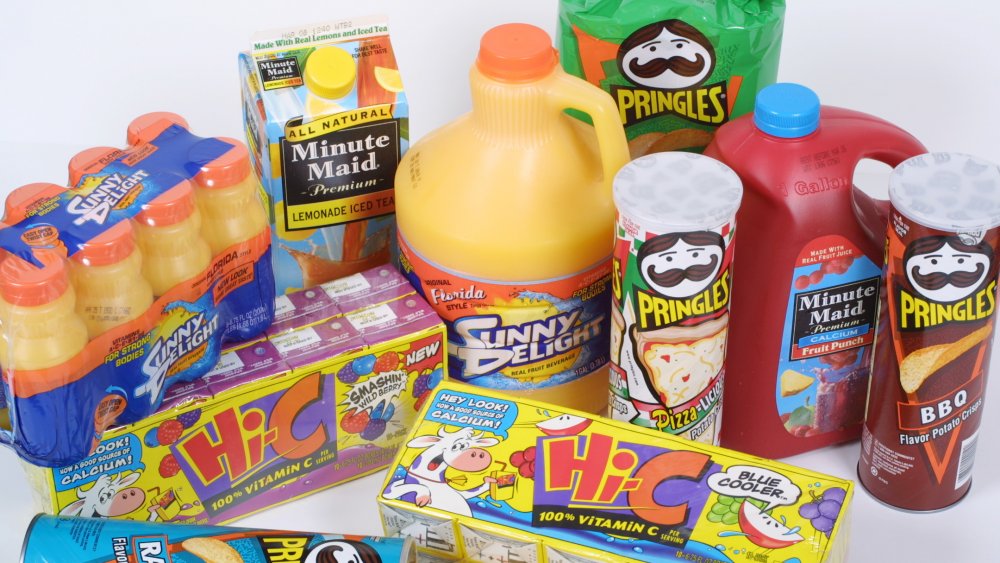The Controversy Sunny D Never Really Recovered From
The 1990s was a decade of weird food products. Airheads, Baby Bottle Pops, GoGurt, Lunchables, and all kinds of other unique and out-there treats were vying for kids' attention. The wacky commercials and zany packaging still have the ability to induce nostalgia in any '90s baby.
But few things were as universally loved by '90s kids as Sunny Delight. Children loved its bright orange color and distinctive, yet somewhat hard-to-define, flavor. Most parents thought it was similar to orange juice and healthier than regular soft drinks, so they were happy to buy it for their children. It didn't matter that the drink only contained 4 percent real fruit juice and was actually full of artificial flavorings and added sugar. It was a rare occurrence when both parents and children were satisfied with a product, and the orange drink flew off the shelves.
It expanded its reach across the pond in 1998. By the end of that year, Sunny D was the 12th best-selling grocery store item in the UK, and its sales had overtaken every other soft drink besides Coke and Pepsi, per BBC News.
Sunny Delight made a little girl change color
But just one year later, Sunny D's reign of popularity had begun to falter, due to an urban legend that began floating around, claiming the drink could turn you yellow. It seemed like just a crazy rumor. But that's the thing: It wasn't an urban legend. Sunny D really did turn a little girl's skin yellow.
In December 1998, a four-year-old girl in Rhyl, Wales, turned a distinctive yellowy-orange color after drinking too much Sunny Delight. Sunny D contains Beta-carotene, an antioxidant that is also found in pigmented vegetables like carrots and sweet potatoes. It is actually perfectly healthy, but consuming too much can have the alarming side effect of altering skin color, and this little girl was drinking 1.5 liters of the drink per day, per the Tab.
The negative publicity around the yellow-skinned girl led to a huge drop in the drink's popularity, and Sunny D's sales were nearly halved. They rebranded in 2003, and again in 2009, with less sugar and more real fruit juice, but it never fully recovered from the controversy. While Sunny Delight can still be found in stores today, it no longer has the massive popularity that it enjoyed during its '90s heyday.

